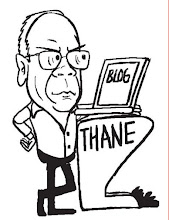State move to make villages tiny republics (The Hindu, July 14, 2002)
By Mahesh Vijapurkar,
Assemblies of voters in tribal gram panchayats in Maharashtra, by a direct secret ballot, can force their sarpanchs and upa-sarpanchs to quit office by adopting no-confidence motions against them in gram sabhas. Then the post would be declared vacant. Similarly, motions limited to the voters of a ward can recall members of the gram panchayat from a ward. Immediately thereafter, new persons can be elected in a by-election to fill the vacancies. The appeals against such developments would not lie with the courts. These two major steps were approved by the Maharashtra Cabinet last week for enactment into law during the coming monsoon session of the Assembly.
Gram sabhas in these areas are to be empowered beyond what was difficult to contemplate in the past. The sarpanch, his deputy and village officials, if found unwilling to cooperate with such assemblies of voters, can be named by resolutions passed by a three-fourths majority and be subject to disciplinary action by the district administration. These sabhas would also have the right to demand the presence of all its officials __ kothwal, talati, police patil, health official, primacy and middle school headmasters, agricultural officials, lowest ranking MSEB engineer __ to give an account of their work. The decisions of these sabhas will have to be enforced.
Once legislated, the changes would go beyond the requirements prescribed in the 1996 stipulation of the Centre and are aimed at developing villages as tiny republics, a concept that was brought into vogue during the Gram Sabha Year in 1999-2000 countrywide.
Nevertheless, R. R. Patil, Rural Development Minister, who inspired a kind of a revolution by enabling villages across Maharashtra to compete in cleanliness and social cohesiveness through a campaign now in its second year, has lobbied hard with all departments to secure their concurrence because he believes in the autonomy of the people, not mere organisational. What makes it easier to get these features into practice in tribal areas is that in purely tribal societies are seen community cohesiveness, and lesser outside influence. There is a traditional respect for community welfare over mere individual rights in such societies. A whole lot of new features are to be introduced. The first annual gram sabha would be presided over by the secretary of the gram panchayat but subsequent ones would be the rights of an individual elected by the sabha. In fact, decisions on priorities to be accorded to village-level projects would vest with the sabha and be binding on the gram panchayat.
The motions of no-confidence against the elected sarpanch and upa-sarpanch have to come for consideration only after a third of all voters in the village give a 15-day notice to the gram panchayat secretary. The deputy tahsildar of the region would preside over such sabhas where the motion is to be taken up. To recall a ward member, at least 50 per cent of voters of the ward have to accordingly vote.

No comments:
Post a Comment